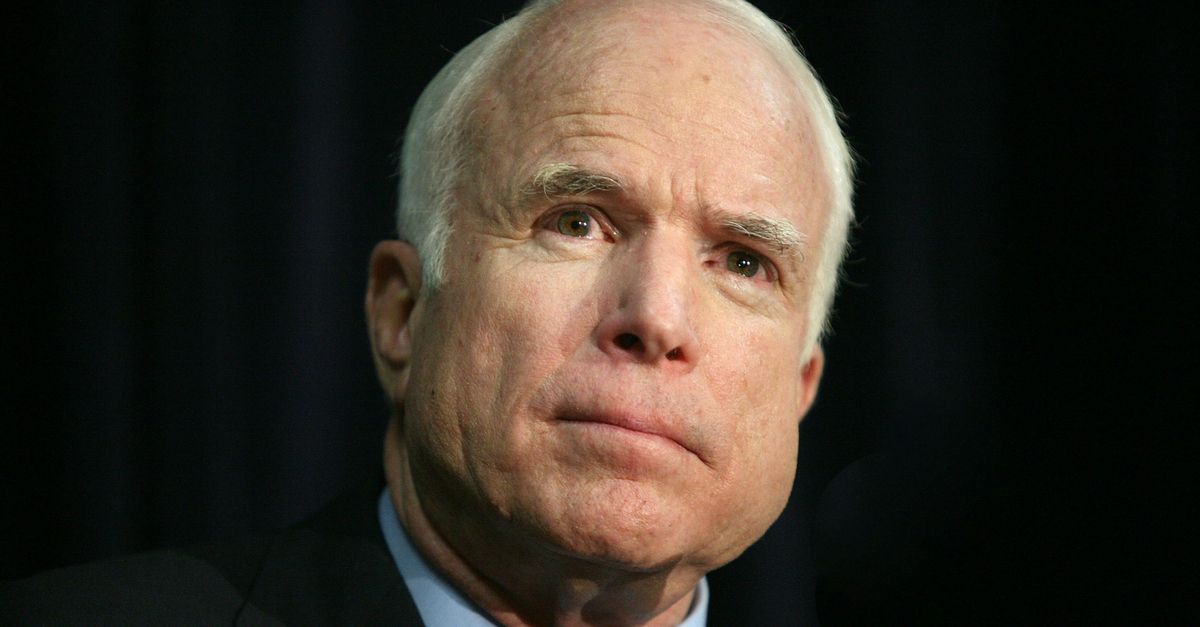After Sen. John McCain (R-Arizona) joined two Republican colleagues on 28 July 2017 in breaking party lines to vote against a so-called "skinny repeal" of the Affordable Care Act (colloquially known as "Obamacare"), a Reddit post that gained traction online credited him with derailing the GOP's efforts in a larger sense:
See, the Republicans have been trying to pass these godawful healthcare bills through a process called budget reconciliation, which, among other things, protects the bill from being filibustered in the Senate and only requires a simple majority of 50 votes (rather than 60, which the Republicans don't have).
The thing is, the Senate can only consider one budget reconciliation bill per topic per year. Of course, if the bill dies in committee and never comes to an official vote, it doesn't count- which is why they've been able to keep hammering away at the issue.
This bill, though, was allowed to come to the Senate floor, because the Republicans thought they'd secured the votes. Collins, Murkowski and the Democrats would vote no, everyone else would vote yes, and Pence would break the tie. And then McCain completely fucked them. And it was almost certainly a calculated move; he voted to allow the bill to come to the floor. Had McCain allowed it to die in committee, McConnell could have come back with yet another repeal bill; but he let it come to a vote, and now they can't consider another budget reconciliation bill for the rest of the fiscal year. The Senate needs 60 votes to pass any kind of healthcare reform now.
So now they're caught between a rock and a hard place. Either they concede defeat on the issue and try again later (causing a big, unpopular stink that could damage elections if they try it before the midterms, or risking losing the slim majority they already have if they wait) or they actually sit down with the democrats like adults and write a halfway decent healthcare bill.
However, the claim is incorrect. While McCain — as well as GOP colleagues Sen. Lisa Murkowski (R-Alaska) and Sen. Susan Collins (R-Maine) and Senate Democrats — voted against a "skinny repeal" amendment to the Republican-sponsored American Health Care Act, the congressional record shows that the bill itself has been returned to the Senate calendar.
It is also unclear when the deadline would expire for a budget reconciliation bill. Sarah Binder, a senior fellow with the non-partisan Brookings Institution, said:
My sense has been that a reconciliation bill remains "alive" until a conference agreement on the next fiscal year's budget resolution is adopted by both chambers.
However, others believe that a bill on the issue could be passed until 30 September 2017 (the end of the current fiscal year.) We contacted Senate Parliamentarian Elizabeth MacDonough's office, as well as the offices of Senate Minority Leader Chuck Schumer (D-New York) and Sen. Lindsey Graham (R-South Carolina) seeking clarification, but have yet to receive a response.
Graham is reportedly working with two GOP colleagues, Sens. Bill Cassidy (R-Louisiana) and Dean Heller (R-Nevada) on a proposal that would require 50 — not 60 — votes to pass, thus paving the way for the repeal of the Affordable Care Act.
However, it is also unclear how much of a priority such a bill will be in the immediate future; Senate Majority Leader Mitch McConnell (R-Kentucky) did not mention health care in a series of tweets on 1 August 2017 outlining a slate of legislative goals, and other GOP senators like Roy Blunt of Missouri have said that "it's time to move on to something else."
We also asked Graham's office for a response to McConnell's statement. He has yet to respond.

